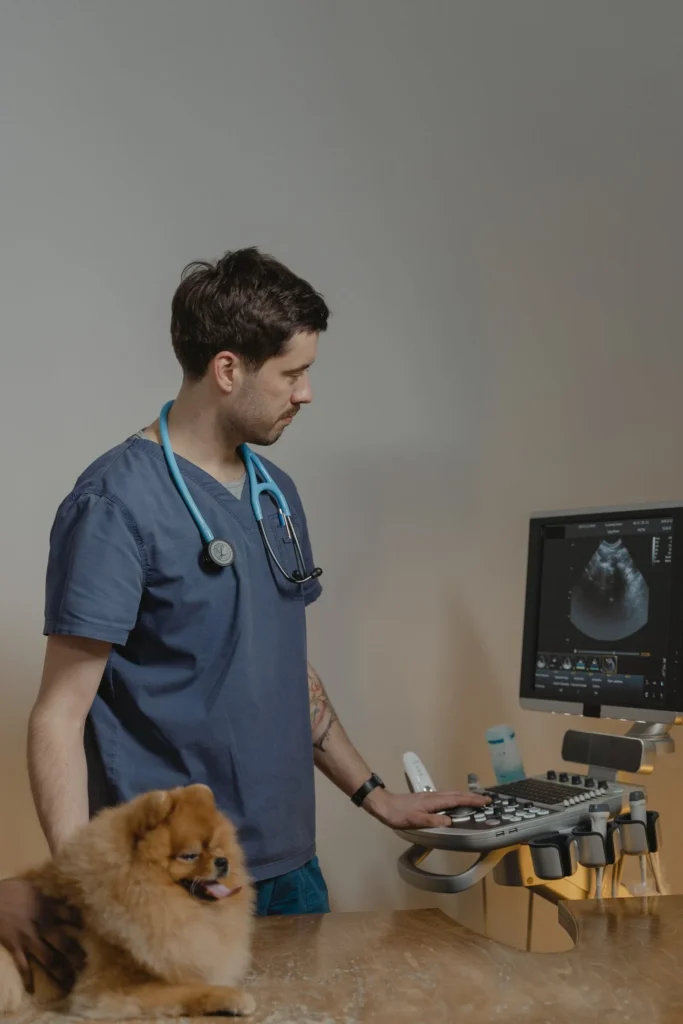Introduction
This article delves deep into the crucial aspects of providing essential healthcare for your dog. Your furry companion’s health and well-being are paramount, and regular healthcare is essential for maintaining their vitality and preventing potential health issues. In this article, we will explore the key components of canine healthcare, from routine vaccinations and preventive measures to recognizing signs of illness and the importance of regular veterinary check-ups.
Routine Vaccinations
Vaccinations are a fundamental part of preventive healthcare for dogs. They help protect your dog from various contagious and potentially life-threatening diseases. Key vaccinations include:
- Rabies: Required by law in many areas, rabies vaccination is essential for preventing this deadly viral disease, which can be transmitted to humans.
- Distemper: This vaccine prevents a highly contagious viral disease that affects the respiratory, gastrointestinal, and nervous systems.
- Parvovirus: Parvo vaccination safeguards against a severe and often fatal virus that affects the gastrointestinal tract.
- Adenovirus (Hepatitis): Protects against a viral infection that can cause liver and respiratory problems.
- Parainfluenza: This vaccine helps prevent a respiratory infection commonly associated with kennel cough.
- Bordetella: Essential for dogs in high-risk environments, this vaccine protects against kennel cough, a contagious respiratory disease.
- Leptospirosis: Prevents a bacterial infection that can lead to kidney and liver damage.
- Lyme Disease: Recommended in areas with a high prevalence of Lyme disease, this vaccine protects against the bacterium transmitted by ticks.
Consult your veterinarian to determine which vaccines are necessary for your dog based on their age, lifestyle, and geographic location. Keep accurate records of vaccinations to ensure your dog remains up-to-date.
Preventive Measures
In addition to vaccinations, several preventive measures contribute to your dog’s overall health:
- Flea and Tick Control: Regularly use flea and tick preventives to protect your dog from infestations and the diseases these parasites may carry.
- Heartworm Prevention: Administer heartworm preventive medication as prescribed by your veterinarian to protect your dog from this potentially fatal parasitic infection transmitted by mosquitoes.
- Regular Grooming: Proper grooming helps maintain your dog’s coat and skin health, prevents matting, and allows for early detection of skin issues or abnormalities.
- Oral Health: Brush your dog’s teeth regularly and provide dental chews or toys to promote good oral hygiene and prevent dental problems.
- Proper Nutrition: Ensure your dog receives a balanced diet suitable for their age, size, and specific health requirements.
- Exercise and Mental Stimulation: Regular exercise and mental stimulation contribute to your dog’s physical and mental well-being, reducing the risk of obesity and behavioral problems.
Recognizing Signs of Illness
It’s crucial to be attentive to signs of illness in your dog, as early detection often leads to more effective treatment. Common signs of illness include:
- Changes in Appetite: Significant changes in eating habits, such as loss of appetite or increased thirst, may indicate underlying health issues.
- Lethargy: Unusual tiredness, lack of interest in activities, or reluctance to move may be signs of illness.
- Vomiting or Diarrhea: Frequent or persistent vomiting and diarrhea can signal gastrointestinal problems.
- Coughing or Sneezing: Persistent coughing, sneezing, or nasal discharge may indicate respiratory issues or infections.
- Changes in Urination: Frequent urination, straining to urinate, or blood in the urine could indicate urinary tract issues.
- Skin and Coat Changes: Noticeable changes in your dog’s skin, coat, or overall appearance should be investigated.
- Behavioral Changes: Sudden changes in behavior, such as aggression, anxiety, or withdrawal, may indicate underlying pain or discomfort.
- Limping or Mobility Issues: Difficulty walking or limping may be related to joint problems or injuries.
Regular Veterinary Check-ups
Regular veterinary check-ups are essential for proactive healthcare. These visits allow your veterinarian to assess your dog’s overall health, administer necessary vaccinations, and address any concerns you may have. During check-ups, your vet may perform the following:
- Physical Examination: A thorough physical examination helps detect any abnormalities, injuries, or potential health issues.
- Vaccinations: Ensure your dog is up-to-date on necessary vaccinations and recommend additional vaccines if needed.
- Dental Assessment: Examine your dog’s teeth and oral health, recommending dental care or cleanings if necessary.
- Parasite Control: Assess your dog’s risk for parasites and recommend appropriate preventive measures.
- Bloodwork: Routine blood tests can identify underlying health issues and monitor organ function.
- Discuss Nutrition: Review your dog’s diet and nutritional needs, making adjustments as necessary.
- Behavior and Training: Address any behavioral concerns or provide training guidance.
- Senior Wellness: For older dogs, discuss senior wellness and any age-related concerns.
Emergency Preparedness
Be prepared for emergencies by having a plan in place and knowing the location of the nearest emergency veterinary clinic. Keep a pet first aid kit on hand and familiarize yourself with common emergency procedures, such as CPR for dogs.
Conclusion
Providing essential healthcare for your dog is a crucial responsibility that directly impacts their quality of life and longevity. By prioritizing routine vaccinations, preventive measures, recognizing signs of illness, scheduling regular veterinary check-ups, and being prepared for emergencies, you can ensure your furry companion enjoys a healthy and happy life by your side. Regular healthcare not only prevents potential health issues but also strengthens the bond between you and your beloved dog.
